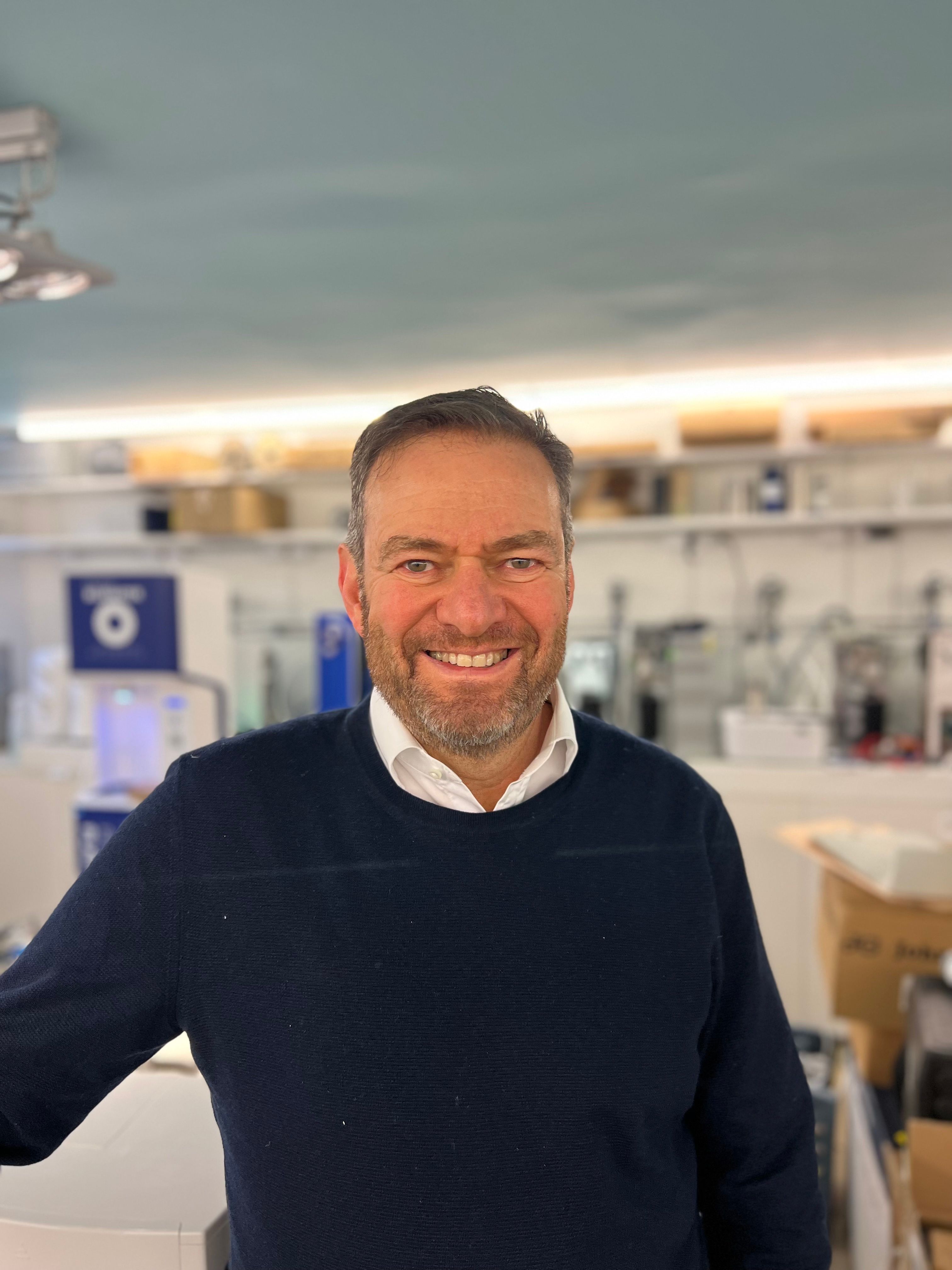New research indicating almost half of all tap water in USA is contaminated
“The USGS findings are both shocking and scary as PFAS has been found in tap and bottled water around the world and linked to numerous adverse human health effects,” says Bengt Rittri (photo below), the founder and CEO of the global beverage and water purification company Bluewater.

A Swedish environmental entrepreneur who has made it his life mission to bring safe and healthier water to everyone, Mr. Rittri noted that the U.S. Environmental Protection Agency EPA has warned that high concentrations of PFAS chemicals have been linked to an increased risk of high blood pressure or pre-eclampsia in pregnant women as well as kidney or testicular cancer, raised cholesterol levels, and damage to the immune system, for example.
The issue of PFAS is not restricted to the United States. The European Environment Agency reports that national monitoring activities have detected PFAS in the environment across Europe. It says the production and use of PFAS in products ‘has resulted in the contamination of drinking water supplies in several European countries. In some highly polluted areas, concentrations of perfluorooctanoic acid (PFOA) and perfluorosulfonic acid (PFOS) in drinking water were above the limit value for individual PFAS proposed in the 2018 recast of the EU Drinking Water Directive (EC, 2017)’. And in China, a 2021 study by a team from Tsinghua University found that nearly 100 million people had been supplied water laden with levels of toxic chemicals that exceeded safe limits.
“The long-term tail of PFAS contamination is such that even if the release of the toxic chemicals was stopped tomorrow, the European Chemicals Agency warns they would continue to be present in the environment and humans for many generations,” Mr. Rittri said.
Rich Razgaitis, CEO of Bluewater North America (photo below), concurred with Mr. Rittri: “This study is a compelling confirmation of the contaminants in our drinking water here in the U.S. and how widespread the problem is.” He said the USGS research adds tremendous urgency for why our schools, businesses, and consumers need to take water purification into their own hands right where they work, rest and play.”

According to USGS, their new research marks the first time anyone has tested for and compared PFAS in tap water from private and government-regulated public water supplies on a broad scale throughout the United States. Those data were used to model and estimate PFAS contamination nationwide. Because they break down very slowly, PFAS are commonly called “forever chemicals.” The USGS said PFAS persistence in the environment and prevalence everywhere make them a unique water-quality concern.
In their study, USGS scientists collected tap water samples directly from people’s kitchen sinks at 716 locations representing a range of low, medium, and high human-impacted areas. They discovered the interim health advisories released by the U.S. EPA in 2022 for PFOS and PFOA were exceeded in every sample in which they were detected in their new study, which tested for 32 individual PFAS compounds using a method developed by the USGS National Water Quality Laboratory.
In independent tests, Bluewater has confirmed its purifiers can successfully remove up to 99.99% of the health-threatening PFAS chemicals, such as PFOA, PFOS, PFBA, and PFBS, which have been found in the tap water of communities worldwide.
The Bluewater research was carried out in a laboratory at the prestigious Royal Institute of Technology in Stockholm (KTH), and the results were verified by the independent bio-analytical testing group Eurofins.

Dr. Ahmed Fawzy, Ph.D. (photo above), a senior research scientist at Bluewater who carried out the tests at KTH verified by Eurofins, said little detailed information is available regarding which specific PFAS are used in what applications and to what extent. “Due to the uncertainty, we decided to independently test the PFAS removal efficiency of our Bluewater Pro water purifier,” he said.
The tests encompassed the four most common PFAS compounds in drinking water listed by the Swedish National Food Agency, PFOA, PFOS, PFBA, and PFBS.
Dr. Fawzy said: “We deliberately contaminated the water entering the Bluewater Pro with PFAS at concentrations higher than average levels and then fed the water through the Bluewater purifier. Testing the purified water revealed an unequivocal result; Bluewater’s unique second-generation SuperiorOsmosis™ technology had removed up to 99.99 percent of all the PFAS chemicals we tested for.”
PFAS has been shown to accumulate over time in humans and the environment. The European Environment Agency (EEA) describes PFAS as ‘moderately to highly toxic, particularly for children’s development,’ while In mid-January 2021, a study published in Environmental Sciences Europe said around 100 million Chinese in 66 cities across China were drinking tap water with unsafe levels of PFAS.
Notes for Editors
–The European Environment Agency report on emerging PFAS risks in Europe can be read here
– The report on PFAS contamination published in Environmental Sciences Europe in January 2020 can be read here
– Bluewater North America was formerly known as FloWater, which was acquired by Bluewater Group in 2022. FloWater dispensers transform ordinary tap water into ultra-purified, great-tasting, premium drinking water without PFAS, lead, microplastics or other toxins. Its popular Refill Stations are in place at hotels, offices, gyms and thousands of schools across the USA.
About Bluewater
Bluewater set its sights on being the world’s most planet-friendly beverage company by innovating disruptive water purification technologies for home, work and play. Providing hydration solutions that are generated and distributed at the point of use, combined with reusable stainless steel and glass bottles, allows Bluewater to break the stranglehold of single-use plastic bottles and their unnecessary, polluting transportation. Bluewater products are available to consumers, hotel and catering operations, and event and venue organizations in Europe, the USA, the UK, China, South-East Asia, the Middle East, and Africa. Bluewater has been honored with two Fast Company World Changing Ideas Awards, a K&B Kitchen Innovation of the Year Award, and numerous other publications have recognized its sustainability efforts. https://www.bluewatergroup.com












